Wageningen University & Research is organizing the ReThink Food Challenge in 2025. The aim of this competition is to develop an innovative business concept to grow food on Earth based on lessons learned from growing food in space. The WUR Student Challenges team focuses on organizing competitions for students in the field of life sciences. Marta Eggers of WUR Student Challenges: "Seven years ago, we started organizing Challenges for life sciences students. Our team has now organized more than 20 different Challenges. The Challenges are very international and reach many students all over the world."
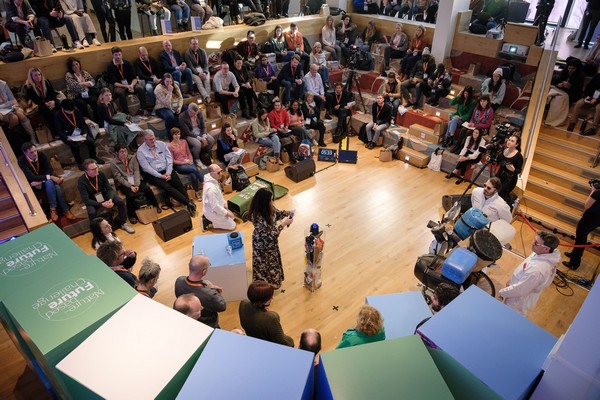
ReThink Food Challenge
The Challenges deal with different topics such as the protein transition, urban food production, bio-based economy, and food system innovation. The organization found space farming a great angle for the ReThink Food Challenge. It also has many applications on Earth. When going to space, one has to think carefully about resources and about circularity. In doing so, it is important to adequately handle waste. Marta: "We also want to do this on Earth. We want to produce more sustainably. This challenge encourages people to think out of the box."
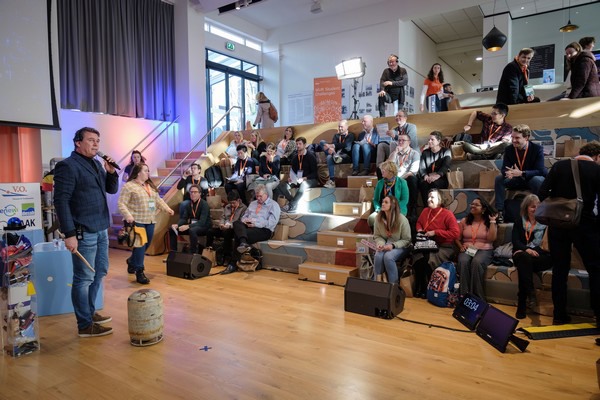
Learning journey
The Challenge lasts four months, and is all about developing innovative ideas into elaborate business concepts. With this Challenge, the WUR aims to connect people that are interested in this topic. Marta: "We want to create awareness and enthusiasm. It is not only about the end result, but also about the road towards it." The Challenge is meant to be a 'learning journey' where students can gain new skills such as entrepreneurial mindset, interdisciplinary teamwork, project management, networking, leadership and problem-solving.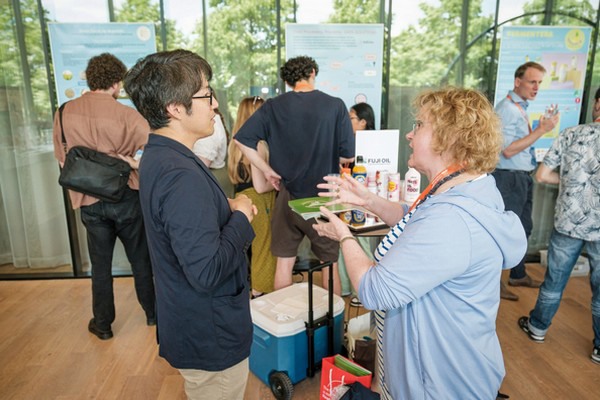
Students networking during the ReThink Wast Challenge
Students can work on any idea that fits within the theme of the Challenge. By the end of the Challenge, the idea should be applicable in a business setting. At the end of the process, 12 finalists will compete for the grand prize of 7,000 euros. Often the teams use the money to continue their idea after the challenge. There have also been teams that have used the money for personal purposes. To students who are still unsure whether to join, Marta has this advice: "Don't hesitate, just do it. If you don't try, you won't find out if you can succeed. It's not only about the end result, but also about the road towards it."
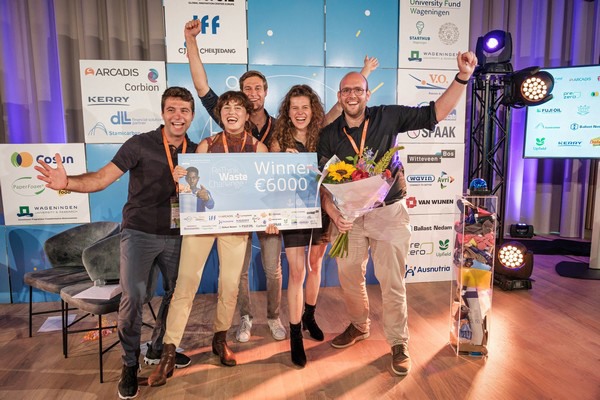 The winners of the previous challenge
The winners of the previous challenge
Indoor farming track-inspiration
This Challenge has two different tracks: indoor farming and alternative proteins. The indoor farming track allows students to work on the innovation of cultivation techniques. For instance, innovation in growing techniques (new cultivation methods, innovations related to vertical farming, hydroponics and aeroculture), the sustainable use of resources (technologies and methods for the efficient use of water and fertilizers), crop resistance and robustness (plants with higher yields and resilience to climate change), innovation in autonomous cropping systems or biodiversity, and genetic improvement (new crop varieties better adapted to different environmental conditions on earth).
Marta: "We hope to inspire the sector with this challenge. For example, with the answer to the question: how to grow insects and plants in one closed system? It often happens that new techniques are discovered in space, and that are later applied on Earth (think of solar panels). During the Challenge, many students and professionals come together and discuss new ideas, challenges and opportunities. The students are future professionals. It is a good opportunity to meet and educate the changemakers of the future."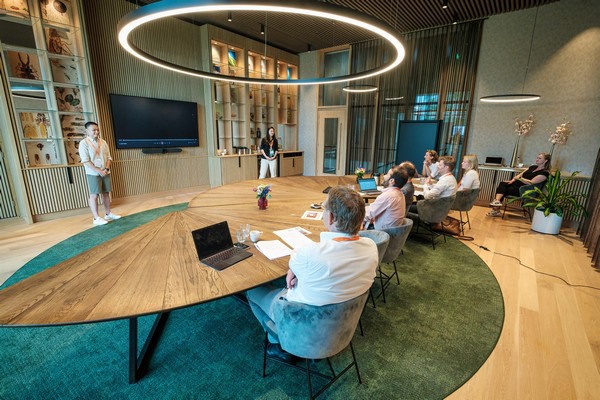
The Jury during one of the previous editions.
Collaboration with business partners
The Challenge consists of three rounds. In the first round, students have to come up with a good idea in cooperation with the participating companies. In the second round, the idea is developed and validated in collaboration with the partners. In the third round, students learn to sell their idea. Among others, Bayer, GEA and GreenTech are partners of this Challenge.
The Challenge starts on 17 January with a kick-off event. During this event, ESA (European Space Agency) engineer Christel Paille will present the MELiSSA program. The aim of this program is to recycle products such as carbon dioxide, urine, and other organic substances into vital resources such as oxygen, water, and food. In the first round, students have a month and a half to work on the report. May 27 is the selection moment.
Companies interested in participating in the Challenge can still contact Rio Pals (rio.pals@wur.nl). It is a good opportunity to recruit new talent. Meanwhile, more than 30 universities worldwide that offer top courses for future controlled environment agriculture specialists have expressed interest in this Challenge. Companies can also learn from the Challenge.
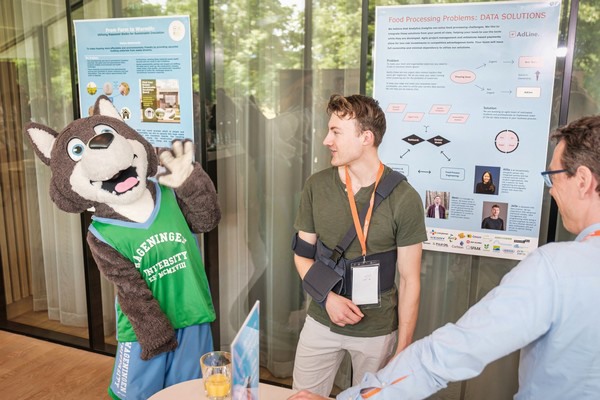
A WUR mascot during one of the previous challenges.
Interested parties can view the slides of the ReThink Food Challenge here.
For more information:
Marta Eggers 
WUR Student Challenges
marta.eggers@wur.nl
www.wur.nl//student-challenge
